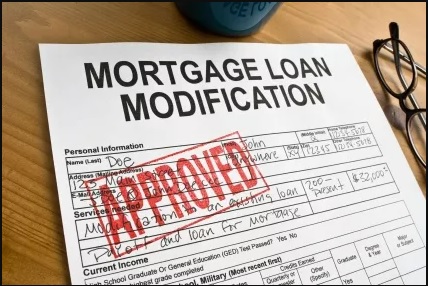When homeowners fall behind on their mortgage payments and are unable to catch up, they may find themselves considering options like a real estate short sale or loan modification. Both of these options can provide relief from a difficult financial situation, but they work in different ways and have different advantages and disadvantages. In this article, we’ll explore the differences between a short sale and loan modification and help homeowners decide which option is the better choice for them.
Short Sale
A short sale is a real estate transaction in which the homeowner sells the property for less than what is owed on the mortgage. The lender agrees to accept less than the full amount owed to them in order to avoid the costs and lengthy process of foreclosure. A short sale can have advantages, such as avoiding foreclosure and reducing debt, but there are also potential disadvantages, such as a negative impact on credit score and potential tax implications.
One of the primary benefits of a short sale is that it allows homeowners to avoid foreclosure. Foreclosure can have a significant negative impact on credit scores and can make it difficult for homeowners to obtain credit in the future. By completing a short sale, homeowners can avoid the negative consequences of foreclosure and move on with their lives.
Additionally, a short sale can reduce the amount of debt owed by the homeowner. The lender agrees to accept less than the total amount owed on the mortgage, which can make it easier for homeowners to move forward financially. This reduction in debt can also help homeowners to avoid a deficiency judgment, which can occur in some states after a foreclosure.
However, there are also potential disadvantages to a real estate short sale. A short sale can have a negative impact on credit score, although it is generally less severe than the impact of a foreclosure. A short sale can also have potential tax implications, as the amount of debt forgiven by the lender may be considered taxable income by the IRS.

Loan Modification
A loan modification is a change to the terms of the homeowner’s mortgage. The lender may agree to reduce the interest rate, extend the term of the loan, or forgive a portion of the principal balance. The goal of a loan modification is to make the monthly mortgage payment more affordable for the homeowner. This can help homeowners avoid foreclosure and remain in their homes.
One of the primary advantages of a loan modification is that it allows homeowners to stay in their homes. If the homeowner is attached to their property and wants to keep it, a loan modification may be the best option. Additionally, a loan modification can reduce the homeowner’s monthly mortgage payment, making it more affordable and easier to manage.
However, there are also potential disadvantages to a loan modification. A loan modification can have a negative impact on credit score, although it is generally less severe than the impact of a foreclosure or real estate short sale. Additionally, a loan modification can extend the term of the mortgage, which can increase the total amount of interest paid over time.
Short Sale vs. Loan Modification: Which is the Better Option?
When deciding between a short sale and loan modification, it’s important to consider several factors, including the homeowner’s financial situation, their long-term goals, and the potential impact on their credit score.
Financial Situation
The first factor to consider when deciding between a short sale and loan modification is the homeowner’s financial situation. If the homeowner is unable to afford their monthly mortgage payment and owes more on their mortgage than their property is worth, a short sale may be the better option. A loan modification may not be enough to provide the relief that the homeowner needs.
Long-Term Goals
Another factor to consider is the homeowner’s long-term goals. If the homeowner wants to stay in their home and is able to afford their monthly mortgage payment with a modified loan, a loan modification may be the better option. If the homeowner wants to move on from their property and start fresh, a short sale may be the better option.

Impact on Credit Score
A short sale and loan modification can negatively impact a homeowner’s credit score, but a short sale may have a greater impact. A short sale can stay on a credit report for up to seven years, while a loan modification may have a shorter-term impact. Homeowners should consider their long-term credit goals when deciding which option is the better choice for them.
Tax Implications
A short sale can have potential tax implications, as the amount of debt forgiven by the lender may be considered taxable income by the IRS. This means that the homeowner may have to pay taxes on the difference between the sale price and the outstanding balance on the mortgage. A loan modification does not have the same potential tax implications.
Timeframe
The short sale process can be lengthy and complicated, taking several months to complete. A loan modification may be a quicker option, with some lenders able to process the modification within a few weeks.
Conclusion
Both a real estate short sale and loan modification can provide relief for homeowners facing financial hardship and struggling to pay their mortgages. The decision between the two options will depend on the homeowner’s financial situation, long-term goals, and potential impact on their credit score. Homeowners should weigh the pros and cons of each option carefully and consult with a financial advisor or real estate agent to determine the best choice for their individual circumstances. With careful consideration and expert advice, homeowners can make an informed decision about whether a short sale or loan modification is the better option for them.



